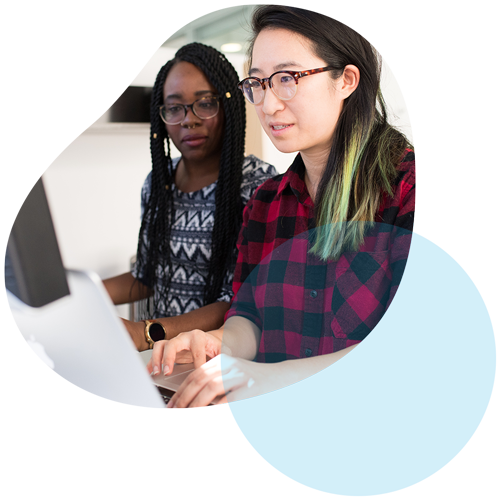IPEd’s Mentoring Program offers opportunities for experienced editors to share what they know with their colleagues.
IPEd Mentoring Program
Are you looking to learn from other editors, to improve your editing skills with professional oversight and feedback from experienced editors? Perhaps you’re preparing for the accreditation exam. Or maybe you’re stepping back into editing after some time away and keen for some advice.
The IPEd Mentoring Program might be just what you’re looking for.
The Mentoring Program is aimed at editors at all levels, including those:
● entering the profession
● preparing for accreditation
● returning to the profession after time off
● with any level of experience who want to brush up their skills or move into a new area of editing
● who have accepted a job outside their usual area of expertise.
Mentors will provide advice and guidance and share experiences and wisdom, all of which will help you develop as an editor.
To learn more about the Mentoring Program, and to see a list of possible topics for mentoring, please see the Mentoring Program Guidance Notes [PDF 191KB] or watch our introductory video.
The program is coordinated by the IPEd Mentoring Standing Committee. The committee can arrange mentorships in any location and on any topic related to editing – whether you need help with editing practice, you’re looking for professional development or want advice about business practices.
If you’re ready to apply, please complete the application form for mentees and the committee will be in touch soon.
What kind of mentorships are available?
The IPEd Mentoring Program is open to all financial members, at any level, of IPEd. It is also open to members of the Canberra Society of Editors (CSE).
We have a pool of 30+ mentors, and mentees are invited to apply for either a standard or mini mentorship to improve their professional editing skills or get started in a new area of editing.
Standard mentorship
8 to 10 contact hours
$275
Typically, a standard mentorship is spread out over 3 to 6 months, with regular meetings (on Zoom or face to face) and “homework” in between times.
Mini mentorship
4 to 5 hours
$143
Mini mentorships are designed to be shorter and more focussed than a standard mentorship. They may be particularly useful for students or other mentees who do not need a full mentorship but would benefit from a mentor’s advice about a specific topic or area of editing. Mini mentorships run for a maximum of 4 to 5 hours.
Mentorships are driven by the mentees with mentors providing guidance and sample exercises (after seeking permission from clients) suited to the mentee’s goals and needs.
If you are unsure whether to choose a standard or mini mentorship, please contact the Chair of the Mentoring Standing Committee.

Meet the mentors
How does the IPEd Mentoring Program work?
After selecting the right mentorship, the process of applying and beginning your mentorship is straightforward.
Apply
When you’re ready to apply, please complete the application form for mentees. You’ll be asked to state your 3 main goals in the application form. This helps us to match you with the right mentor.
Get matched with a mentee
Once the committee receives your application, they send a callout to the pool of mentors. Mentors are invited to volunteer if they feel they have skills that are suited to your goals.
Meet your mentor
The committee then sets up an introductory meeting between you and your mentor. If you both agree to go ahead, you’ll be invoiced and the mentorship can begin.
Check-in with the committee
The committee will check in with each mentorship in the first month or two to see how you’re going.
Send us your feedback
The committee follows up with you after your mentorship wraps up by sending online feedback forms to both mentor and mentee.
To learn more about the Mentoring Program, and to see a list of possible topics for mentoring, please see the Mentoring Program Guidance Notes [PDF 191KB] or watch our introductory video.

FAQs for mentees
Do I have to be a full member of IPEd or CSE to access the Mentoring Program?
You must be a financial member of IPEd or CSE, but you can be at any level of membership.
Why do I have to pay a fee?
There are 2 reasons. Firstly, our mentors are professional editors with many commitments and demands on their time. Your fees allow us to pay them an honorarium that acknowledges their valuable contribution. Secondly, research has shown that charging mentees a small fee is more likely to produce a commitment to mentorship.
Can I use a real editing project as the basis of my mentorship?
It depends on the nature of your mentorship. One thing to be aware of with using a real project is that you may be subject to deadlines or security arrangements that make it impractical to get the most out of your mentor. It is preferable to treat your mentorship as a professional development exercise, and it is likely that your mentor will select a text for you to work on that covers a wider range of issues than a real job.
Will I be eligible for full membership after being a mentee?
You will only be eligible if you can show that you satisfy the requirements for full membership.
Will being a mentee count towards accreditation?
Not directly – you will still have to pass the IPEd accreditation exam to become accredited. However, being a mentee could be part of your preparation for the exam.
Are there any limits to what the mentor and mentee can discuss?
No, so long as topics are related to editing. Often the mentee needs encouragement to take the next step in their career, so a prime qualification for being a mentor is the ability to listen. And just as the mentee should meet any deadlines for work such as copyediting practice, mentors should discuss timeframes for such practice and be prepared to allocate sufficient time to be a reliable guide to mentees.
What happens if the relationship is not working?
If a relationship does not work out, you or your mentor should contact the Chair of the Mentoring Standing Committee to discuss a possible re-matching.
Interested in being a mentor?
While IPEd’s Mentoring Program offers opportunities for mentees to learn from experienced editors, participation in the program also benefits mentors.
Mentors get the chance to collaborate with emerging editors, exchanging ideas with younger editors they may not otherwise have had the opportunity to meet. Many mentors discover that sharing their knowledge with willing learners can be very rewarding as it reminds experienced editors just how much wisdom they’ve accumulated over their career.
Many mentors develop a renewed awareness of the editing skillset during mentorships, with some reporting that mentoring can be a kind of self-learning. Mentors find that explaining a concept to someone else can reinforce their own conceptual understandings and provide new insights. Mentoring also exposes mentors to the current experiences of early-career editors and underlines the importance of training and quality learning experiences for all editors.
Quality mentorships benefit the entire editing profession. By increasing the skills of both mentors and mentees, the program helps safeguard the reputation of the profession as a whole.
If you have skills to share and would like to be a part of the IPEd Mentoring Program, please complete the form for mentors and the committee will be in touch soon.
History of the IPEd Mentoring Program.
The IPEd mentoring program was started as a pilot program by the Canberra Society of Editors (CSE) in 2012 and has grown to a national program, now also including New Zealand.
It was founded by the former joint chairs, Ted Briggs AE and Elizabeth Manning Murphy DE.
